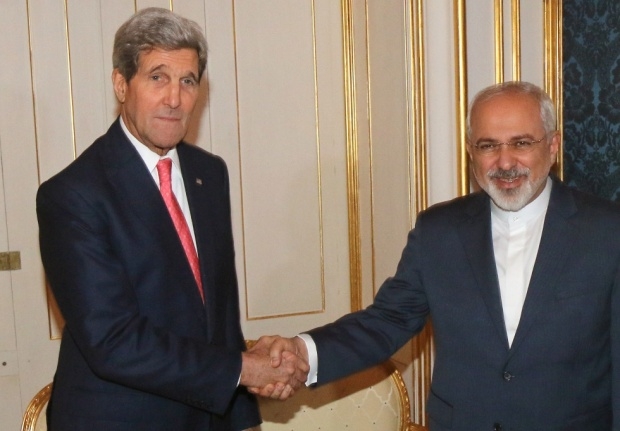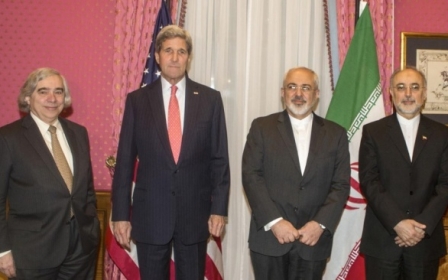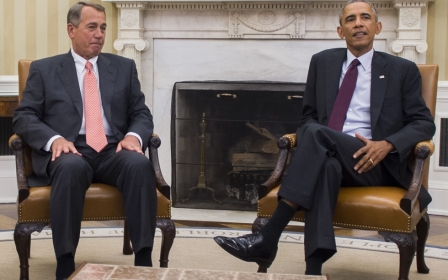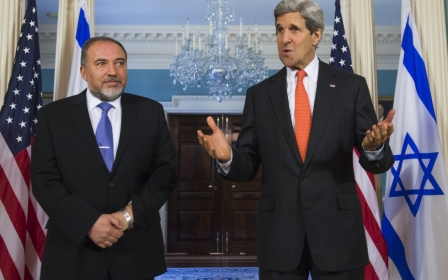US Senate passes bill to review Iran nuclear deal

WASHINGTON - The US Senate overwhelmingly passed legislation on Thursday giving Congress the right to review and perhaps even reject any nuclear deal with Iran, the culmination of weeks of wrangling over how to hold Tehran to account.
The bill passed 98-1 after overcoming initial objections from President Barack Obama. It comes amid intense negotiations between world powers and Iran on a deal intended to prevent Tehran's development of a nuclear weapon in exchange for lifting of economic sanctions.
"We worked hard to create a great bipartisan balance," said the measure's chief author, Senate Foreign Relations Committee chairman Bob Corker.
Republican Tom Cotton was the lone member voting in opposition to legislation that would give lawmakers at least 30 days to review any final Iran accord.
"A nuclear-arms agreement with any adversary - especially the terror sponsoring, Islamist Iranian regime - should be submitted as a treaty and obtain a two-thirds majority vote in the Senate as required by the constitution," said Cotton before casting the only ”nay” vote.
“President Obama wants to reverse this rule, requiring opponents to get a two-thirds vote to stop his dangerous deal,” Cotton added.
The bill now heads to the House of Representatives, where it has the support of the chamber's Republican leaders.
According to White House spokesman Eric Schultz, Obama "said he would sign the legislation in its current form".
If it goes through, it would also prevent Obama from easing economic sanctions against Tehran during the review period. The legislation would also compel the president to assert to Congress every 90 days that Iran was complying with the deal.
Lawmakers would have the ability to support or oppose the nuclear pact by voting for or against lifting congressionally imposed sanctions on Iran.
Should Congress pass a resolution opposing the accord, Obama would have 12 days to veto it. If he does, Congress would have 10 more days to override the veto.
Democrats and Republicans alike said it was vital to assert congressional oversight over the nuclear deal.
"This is important because this president has shown a predisposition to go it alone," number two Senate Republican John Cornyn said.
US lawmakers "cannot be frozen out of the debate and the decision-making when it comes to something as important as an Iranian nuclear negotiation," he added.
"Our goal is to stop a bad agreement that could pave the way to a nuclear-armed Iran (and) set off a regional nuclear arms race," said House Speaker John Boehner in applauding the bill's Senate passage.
Democratic Senator Robert Menendez, the bill's chief co-sponsor with Corker, said Congress, and not the executive branch, should determine whether it is appropriate to lift the sanctions that have hurt Iran's economy.
"Sanctions relief is not a given and it is not a prize for signing on the dotted line," Menendez said.
A 30 June deadline is set for an agreement on a final accord following a hard-fought political framework deal brokered between Iran and world powers earlier in April.
'Best chance'
Obama, who had wanted unfettered negotiation powers with Tehran, lifted his veto threat when it became clear the bill had strong support from Democrats.
But the measure ran into difficulty in recent weeks when conservative senators moved to add amendments, including one by 2016 presidential candidate Marco Rubio that would require Tehran to publicly acknowledge Israel's right to exist as part of the final agreement.
Such an amendment would likely pass, but Democrats warned it would kill the bill and perhaps prompt Iran to walk away from negotiations.
Mindful of the threat of a presidential veto, Senate Majority Leader Mitch McConnell blocked such amendments from being considered.
"The Iran Nuclear Agreement Review Act offers the best chance for our constituents, through the Congress they elect, to weigh in on the White House's negotiations with Iran," McConnell said on the Senate floor.
"And make no mistake, they need to have that opportunity."
As envisioned by US negotiators, the nuclear accord would make it difficult for Tehran to build a nuclear weapon, and make any attempt to do so detectable.
But US lawmakers, including Democrat Ben Cardin, have repeatedly stressed they are hesitant to take Iran at its word.
"There is bipartisan concurrence that we do not trust Iran, so we must demand a final agreement that is verifiable, transparent, allows for intrusive inspections and that result in the snapping back of sanctions if any violations occur," Cardin said after the vote.
Senate passage brought swift praise from AIPAC, the powerful pro-Israel lobby group in Washington.
"This important legislation provides Congress a mechanism to assert its historic foreign policy role," AIPAC said in a statement.
New MEE newsletter: Jerusalem Dispatch
Sign up to get the latest insights and analysis on Israel-Palestine, alongside Turkey Unpacked and other MEE newsletters
Middle East Eye delivers independent and unrivalled coverage and analysis of the Middle East, North Africa and beyond. To learn more about republishing this content and the associated fees, please fill out this form. More about MEE can be found here.




